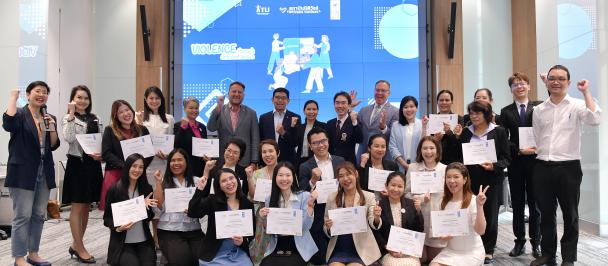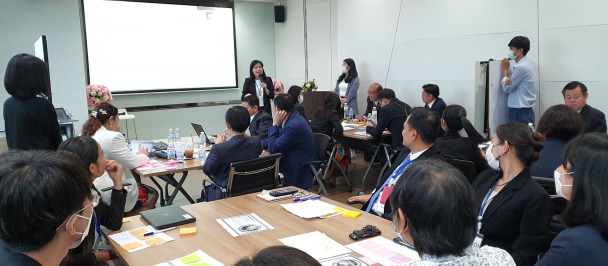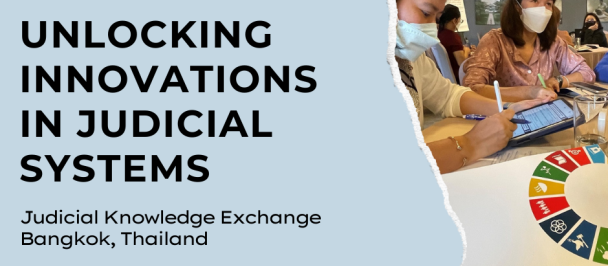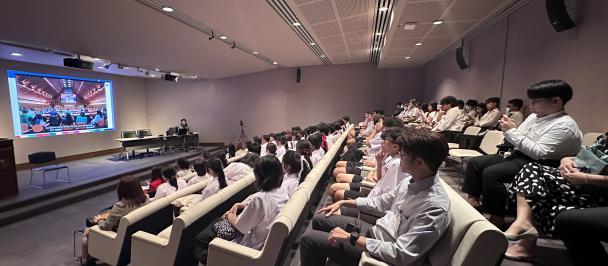Advancing Inclusive Justice in Lao PDR
Gender Audit Workshop
March 27, 2024
GENDER AUDIT WORKSHOP
As societies increasingly recognise the impact of gender issues on individuals and families, judges play a vital role in uploading the fundamental rights of all citizens.
In 2023, judges from nine Asia-Pacific countries joined forces with the UNDP Judicial Integrity Network in ASEAN project to create tools for judiciaries and enhancing their capacity to address gender equality within court operations. Crafted by committed judges advocating for improved gender-related education and practices within judiciaries, these tools aim to protect the gender-based rights of court staff and judges. They include a Gender Audit, a Self-Study Reading list, and a set of model policies.
The Gender Audit tool comprises a 51-question assessment tailored for judiciaries, addressing eight critical areas: Gender Commitment, Equal Opportunities, Courtroom Equality, Gender Infrastructure in the Courtroom, Accountability, Sufficient Resources, Professionalism, Competence and Diligence, and Monitoring and Evaluation.
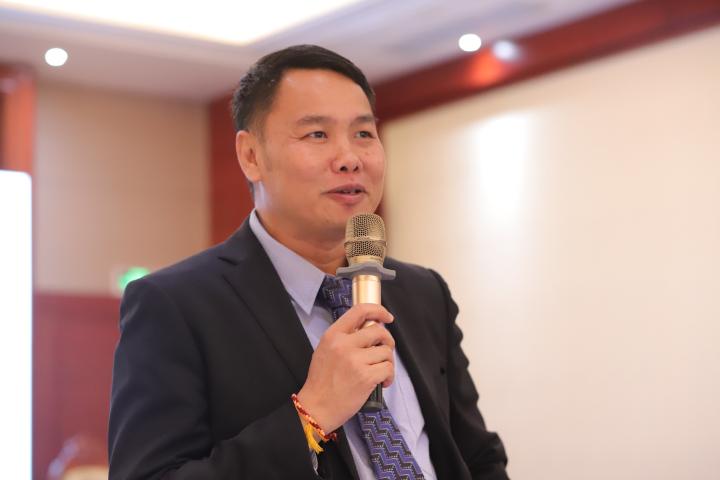
The first gender audit implementation took place in Lao PDR, aligning with the country's commitments to court excellence and gender equality outlined in the 9th National Socio-Economic Development Plan, the People's Supreme Court (PSC) development plan, and the Standard Operating Procedures (SOP) for the Justice Sector Response to and Prevention of Violence against Women and Children.
The event, co-hosted by the PSC and UNDP, comprised a one-day workshop attended by judges, court officers, and representatives from regional courts across Northern, Central, and Southern Laos. The participants convened to gain insights into conducting a gender audit assessment, marking the initial phase toward formulating a comprehensive gender action plan.
The workshop held in Vientiane started with an introduction to the gender audit methodology, featuring sample questions, terminology definitions, and interactive exercises to highlight the importance of upholding gender equality in the courtroom. Later, participants engaged in the gender assessment before discussing the next steps. The conversations focused on strategies for translating audit findings into actionable recommendations and, ultimately, developing a gender action plan.
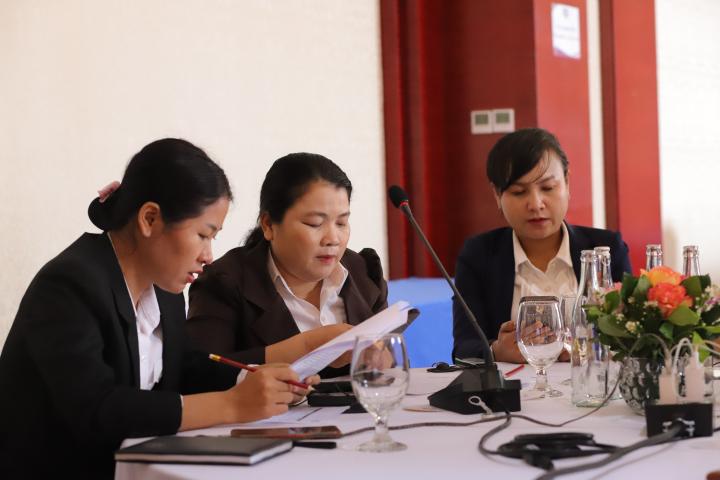
As Lao PDR takes the lead as the first country among JIN ASEAN members to conduct the gender audit, the People's Supreme Court assumes a crucial part in piloting the initiative. The comments and feedback collected from the judges at the end of the workshop will serve as valuable resources to refine the audit process, ultimately enhancing its effectiveness in supporting judiciaries' efforts to mainstream gender equality and achieve court excellence.
During her opening statements, Caitlin Porter, Governance Team Leader of UNDP Lao PDR, emphasized the pivotal role of courts in delivering justice fairly and equitably to the country's population, a core motivation behind UNDP's eager support to the PSC. Furthermore, Ms. Porter emphasized that the workshop aimed to "empower judges and court staff to analyze and strengthen approaches to promote gender equality in the court system". In his opening remarks, PSC co-chair, Director General of the Department of International Cooperation, Mr. Acksonesinh Vixayalai referred to gender equality as a shared goal of UNDP and the PSC. Undoubtedly, this area will serve as a catalyst for future collaboration.
The Gender Audit workshop was held as part of the 2023-2024 JIN ASEAN project, supported by the U.S. Bureau of International Narcotics and Law Enforcement Affairs (INL), which seeks to enhance court user engagement - a priority area for improvement as identified by the PSC's self-assessment in 2022.
Following the workshop, UNDP will support the PSC in interpreting the audit findings and kickstarting the development of an action plan. This process may entail conducting focus group discussions to generate recommendations, identifying key stakeholders for implementation, and facilitating a session with court staff to design the action plan and prioritize recommendations.
Pictures from the workshop are available here.

 Locations
Locations
